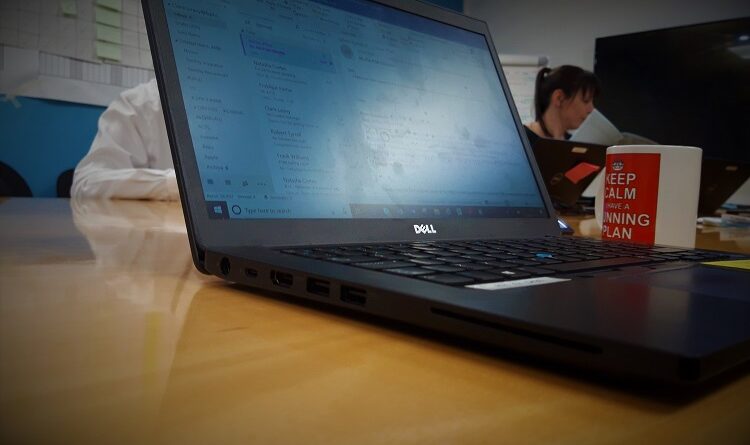
[ad_1]
Employees build and test robots at Amazon’s BOS27 Robotics Innovation Hub in Westborough, Massachusetts on November 10, 2022 — © AFP
Different parts of the US are better areas for establishing a start-up venture, or for building upon an existing business venture. But which state truly leads in the tech startup space? How do different states fare when it comes to fostering a thriving tech ecosystem?
Many of the answers are apparent in a recent study conducted by Merger & Acquisition Advisor, webacquisition.com. This review found that California is the premier state in the U.S. for tech startups, scoring an 88 out of 100 on a specially developed scale.
At the other end of the spectrum, Mississippi is ranked as the least conducive state for tech startups, scoring just 35.
This conclusion was drawn based on various parameters, including the number of Bachelor’s in Science & Engineering (S&E) degrees among 18-24 year-olds, the percentage of S&E occupants in the workforce, the number of venture capital deals in technology and knowledge sectors, venture capital investments relative to GDP, average business applications over the past 5 years, the business survival rate, tax rates, average weekly wages, and the Quality of Life (QOL) index in each state.
To derive at the outcome there was an evaluation of all 50 states in the U.S. using these distinct criteria, assigning a score out of 100 for each criterion. These individual scores were then combined and weighted to generate a final score out of 100.
The data for this was sourced from the Tax Foundation, the Bureau of Labor Statistics, the National Center for Science and Engineering Statistics, and the United States Census Bureau.
Outcomes
In terms of the outcomes, California takes the top spot with its thriving S&E workforce, with 26.94 bachelor’s degrees in S&E per 1000 18 – 24-year-olds and 5.90 percent S&E occupants in the workforce. It boasts a significant venture capital investment in tech (0.40% of GDP) and impressive business applications (437,447) with a high survival rate of 55.20 percent..
Despite a higher tax rate of 8.80 percent, the state offers an average weekly wage of $1,658.50 and a high quality of life index of 137.6, securing its top position with a final score of 88.
New York ranks second with strong representation in S&E education and workforce (31.05 bachelor’s degrees in S&E per 1000 18-24-year-olds and 4.40 percent S&E occupants in the workforce). The state sees a higher percentage of venture capital deals in tech (0.50 percent of GDP). It has a substantial number of business applications (264,837) with a survival rate of 53.90 percent.
The state’s lower tax rate of 6.50 percent and an average weekly wage of $1,756.50 contribute to a quality of life index of 134.5, resulting in a final score of 76.13.
Massachusetts ranks third with 38.16 bachelor’s degrees in S&E per 1000 18-24 year-olds and 7.10 percent S&E occupants in the workforce. It has a reasonable venture capital investment in tech (0.40% of GDP). It sees many business applications (65,308) with a survival rate of 55.00%. With an 8.00 percent tax rate and an average weekly wage of $1,757.00, the state offers a high quality of life index of 149.7, resulting in a final score of 74.8.
Florida secures the fourth spot with a relatively lower percentage of S&E graduates (20.57 bachelor’s degrees in S&E per 1000 18-24-year-olds) and 3.60 percent S&E occupants in the workforce. It has a limited venture capital investment in tech (0.10 percent of GDP). Still, it makes up for it with many business applications (507,669) and a reasonable survival rate of 50.20 percent.
With a lower tax rate of 5.50 percent and an average weekly wage of $1,203.50, the state has a quality of life index of 102.8, resulting in a final score of 73.55.
Texas ranks fifth, with 16.3 bachelor’s degrees in S&E per 1000 18-24-year-olds and 4.90 percent S&E occupants in the workforce. The state’s venture capital investment in tech is relatively low (0.10% of GDP), but it sees a considerable number of business applications (392,189) with a survival rate of 51.50 percent.
With a General Revenue Tax and an average weekly wage of $1,338.75, the state has a quality of life index of 92.5, resulting in a final score of 68.28.
In contrast, Mississippi ranks last, Mississippi has only 15.7 bachelor’s degrees in S&E per 1000 18-24-year-olds and a 2.50 percent S&E workforce. It also lacks in tech venture capital investment. The average weekly wage is $882.50, with a business survival rate of 39.50 percent, culminating in a final score of 35. This is followed by Kansas in 49th and Nevada in 48th position.
[ad_2]
Source link






